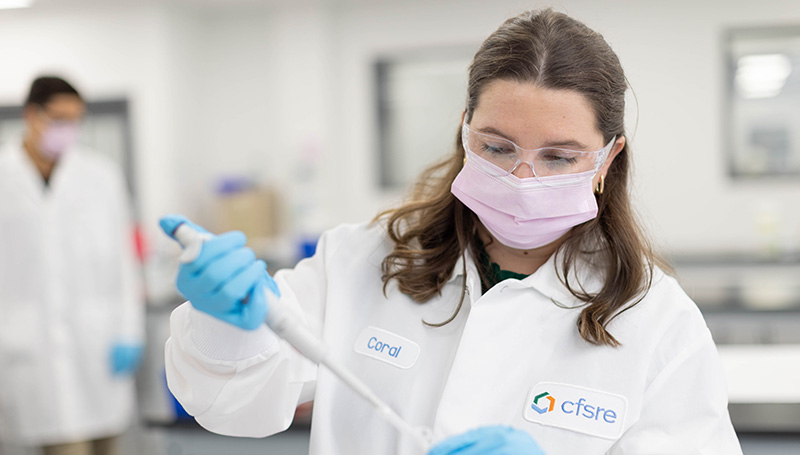Forensic Biology
Forensic Biology involves the analysis of biological fluids and tissues collected at crime scenes and from articles of physical evidence for the purpose of identification and individualization. A forensic biologist employs a wide range of laboratory methods and instruments for body fluid identification and forensic DNA analysis.
Research conducted in the forensic biology laboratory at the CFSRE focuses on novel approaches to serological and human identification, evaluating newly released or upcoming products and methods, and optimizing current methodology.
What we do
Due to constraints in the availability of resources in most laboratories, development of new technologies, optimization of methods, and product evaluation is a lower priority compared to casework and is often set-aside until resources become available or until new guidelines force implementation. In addition to a robust research program funded through the National Institute of Justice (NIJ) and Department of Defense (DOD), the CFSRE researchers in the forensic biology unit work in collaboration with local laboratories, vendors, universities, and law enforcement agencies to evaluate and develop new methods and technologies. The resulting information and resources allow for the dissemination of these optimized methods or evaluations to laboratories that are interested in implementing novel procedures. Vendors also have the opportunity to receive feedback from the perspective of a case working laboratory on newer methods or products before being released to the community.
Our most current work is focused on protein mass spectrometry-based techniques for body fluid identification, in particular its application to the analysis of sexual assault kits, next-generation sequencing (NGS), and evaluating new products to optimize the recovery of sperm cells from sexual assault samples.








